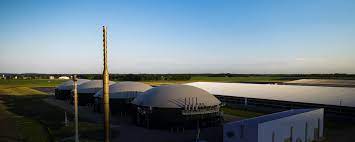DTE Vantage, a developer of renewable energy projects with a national footprint in the US, is in the first round of a process to sell its RNG business, according to two sources familiar with the matter.
Lazard is running the process, the sources said. First round bids were recently received.
The company’s RNG portfolio includes 13 projects, four of which are landfill-to-gas while the remainder are on dairy farms, with more under construction, according to company materials. One of the largest RNG producers in the Midwest, the company also has projects in North Carolina, California, New York, and Wisconsin.
Of note, the Riverview Energy landfill gas asset in Riverview, Michigan produces 8.6 mmcfd of pipeline natural gas and includes 6.6 MW of solar. Pinnacle Gas in Moraine, Ohio, produces 4.5 mmcfd, while Seabreeze Energy in Angleton, Texas produces 5.8 mmcfd.
DTE Vantage is a non-utility subsidiary of DTE Energy. Founded in the 1990s, it has about 600 employees and operates 64 projects in 16 US states, with one asset in Canada. The company serves industrial, agricultural, and institutional clients across three core groups: Renewable Energy, Custom Energy Solutions, and Emerging Ventures.
DTE declined to comment. Lazard did not respond to a request for comment.





